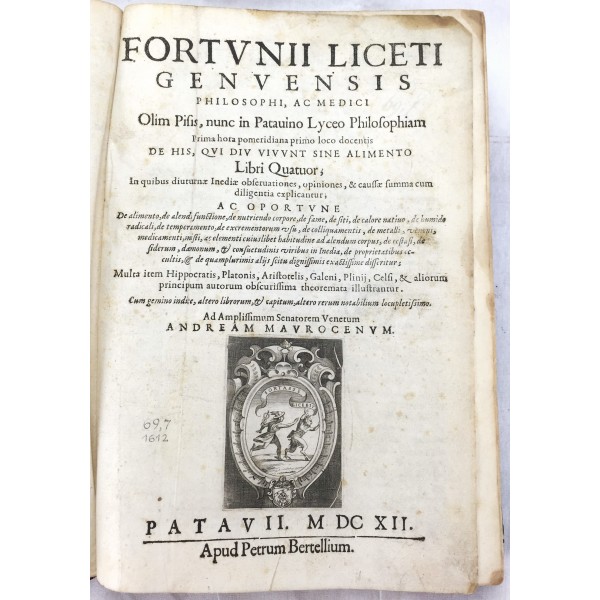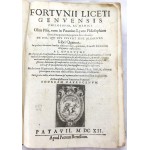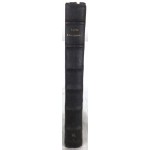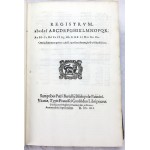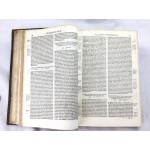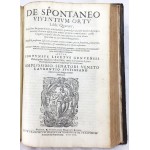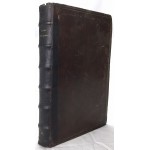De spontaneo viventium ortu [AND] De his, qui diu vivunt sine alimento (2 volumes bound in 1)
De spontaneo viventium ortu [AND] De his, qui diu vivunt sine alimento (2 volumes bound in 1)
Fortunio Liceti; Fortunius Licetus
Vicetiae, Ex typographia Dominici Amadei, apud Franciscum Bolzetam; 1612. Patavii, Apud Petrum Bertellium, 1618.
2 volumes bound as 1. 2 works by Liceti, De his, qui diu vivunt sine alimento, Patavii [i.e. Padua]: Apud Petrum Bertellium, 1612. + De spontaneo viventium ortu, Vicenza: Ex typographia Dominici Amadei, apud Franciscum Bolzetam, 1618. 1st editions. Folio; 31 x 21 cm. Collated: [68], 199. [1], 159 (i. e. 162) p. + [3], ff., 323, [30] p. Bound in contemporary calf, rebacked on later spine. Interally good.
Fortunio Liceti (1577-1657) was an influential Genoese doctor and natural philosopher. A friend and correspondence of Galileo and a remarkable polymath, Liceti wrote widely on scientific subjects. Liceti is best known today for his 'De Monstris', a treatise on deformities. Liceti's De his is a collection of examples of long-term fasting. Liceti argued that longevity could be increased by fasting and provides a general treatise on nutrition. The second work, De spontaneo viventium ortu, "is a study of spontaneous generation, the Aristotelian doctrine that life (primarily insects) could be generated in the process of decomposition, though it discusses fungi and other forms of life that appear to originate spontaneously." Liceti surveyed a wide range of existing ideas related to spontaneous generation including an extensive analysis to Ficino's theory on abiogenesis. Liceti's discussion was widely diffused throughout Europe in the 17th century in the works of Daniel Sennert and Athanasius Kircher, who, himself, provoked intense debates on the subject. See Hirai, Medical Humanism and Natural Philosophy, pp. 123-15, 2011. Licenti was well represented in the library of Sir Thomas Browne, who studied in Padua during the time Liceti was professor of experimental medicine. Refs: National Library of Medicine. Brunet III 1069 for De His, qui diu vivunt
